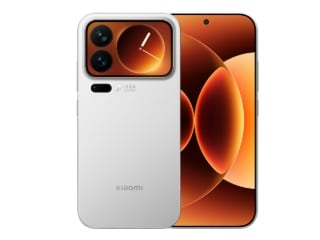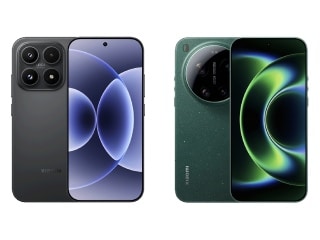- Home
- Transportation
- Transportation News
- Ferrari Plans to Launch First All Electric Vehicle by 2025, Researching Zero Emission Hydrogen Fuel Cells
Ferrari Plans to Launch First All-Electric Vehicle by 2025, Researching Zero-Emission Hydrogen Fuel Cells
Unlike rivals Bentley and Volvo, Ferrari has not provided a roadmap for going all-electric.

Ferrari is planning to launch first all-electric vehicle by 2025
Ferrari makes some of the fastest cars on the road, but the luxury Italian automaker is taking the slow lane to an electric future as it tries to overcome the technology's disadvantages against today's powerful fossil fuel engines.
At an investor day this month, executives promised a new era, with the first fully electric Ferrari in 2025.
But for now, combustion engines remain the noisy heart of what it does. Unlike some rivals, Ferrari has not provided a roadmap for going all electric. Volkswagen Bentley brand and Volvo are both targeting 2030.
According to a source familiar with Ferrari's business plans, a new production line focused on electric vehicles (EVs) should help lift annual production at its plant in Maranello, Italy, by more than 35 percent to over 15,000 cars by 2025 versus 11,155 in 2021 – or 65 cars per day versus 46 currently - delivering higher profit margins in the process.
Ferrari declined to comment.
The carmaker has told investors it is targeting a core profit (EBITDA) margin of 38-40 percent in 2026, versus 35.9 percent in 2021.
Its line-up could also grow to at least 17 models by 2026 from 12 today. But most new models will, at least initially, have a combustion engine - including its first SUV, the Purosangue, powered by its trademark huge 12-cylinder engine - though some may be hybrids.
Ferrari currently has four plug-in hybrids in its line-up.
A zero-emission future poses the same challenges for Ferrari as it does for rivals - EV batteries weigh hundreds of kilograms, which affects aerodynamics and handling, and can't match the sustained power and throaty roar of a massive combustion engine.
To solve those expensive challenges, Ferrari is researching solid state batteries, which could theoretically improve battery power, as well as hydrogen fuel cells and synthetic fuels, both of which face an uncertain future.
European Union countries agreed this week to an effective ban on new fossil-fuel car sales, but will assess in 2026 whether hybrid vehicles and synthetic, or CO2-neutral, fuels could comply with that goal.
"In every case where you have a technology transition, by definition you have a situation which is a little bit fuzzy, there is some fog," Ferrari CEO Benedetto Vigna, a technology industry veteran who took over in September, told Reuters.
Jefferies analyst Philippe Houchois describes Ferrari's approach as "measured", but adds that may not be popular with investors as some automakers charge towards an electric future.
"They can run their profit center with combustion engines longer and amortize their investment there," he said. "But it's not necessarily what the market wants to hear because the mindset is let's rush into EVs and never look back."
AN ELECTRIC MARRIAGE?
Every 22 minutes on the V8 assembly line at Maranello a finished engine and chassis come together, which Ferrari calls a "marriage."
For an undisclosed sum, the engine with a V12 model includes a plate bearing the name of the worker who made it.
Ferrari executives highlight the emotion some drivers feel when they buy one of their cars, that start at over EUR 200,000 (rougly Rs. 1,65,000 crore).
"I see customers coming to take their cars and some of them are crying," Vigna told Reuters.
So it's crucial for Ferrari to create a similarly passionate response to its EVs.
Hybrid sports cars have been a success, pairing powerful engines with the instant acceleration of an electric motor.
But fully-electric sports cars currently have a weight problem because of the huge batteries needed to provide enough power. Croat hypercar maker Rimac's Nevera, for instance, weighs 2,200 kg, more than fossil-fuel sports cars and heavier even than Ford Transit and Mercedes Sprinter vans.
That enormous weight "in turn affects performance, driving dynamics and experience", said Dario Duse, managing director at consultancy firm AlixPartners.
Ferrari is not alone in facing these challenges, and few ultra-luxury rivals are rushing to go electric.
Lamborghini, for instance, doesn't plan a fully-electric car until the end of the decade.
But, according to AlixPartners' Duse, Ferrari must weigh its options more carefully than Lamborghini, which has a deep-pocketed owner in world No.2 carmaker Volkswagen (VW).
"For Ferrari, which unlike Lamborghini does not have access to a development platform like that of VW, the issue of investments is also certainly relevant," Duse said.
HYDROGEN TO THE RESCUE?
Among its options, Ferrari is researching hydrogen fuel cells, a future zero-emission solution touted by Japan's carmakers and the likes of BMW in Europe that can match the sustained power of combustion engines.
British startup Viritech is already building a hydrogen hypercar, with input from Italian auto design house Pininfarina, a limited-edition vehicle weighing 1,000 kg that it aims to use to sell the technology to carmakers.
CEO Timothy Lyons says over the last 18 months Viritech has seen a "huge spike in interest" from conventional carmakers in the concept.
But hydrogen fuel cell cars need infrastructure for producing "green" hydrogen using renewable energy and fuelling stations, which are unlikely to be in place until the 2030s.
Vigna said Ferrari is also working with four partners in Europe and Asia on battery components to research the next generation of high energy density solid state batteries, which are lighter than today's cells.
Carmakers such as Ford and BMW have invested in solid state batteries, but the technology is still some years away from use in cars.
"Solid state batteries are turning into a bit like the hydrogen story in that it's a fuel of the future," Jefferies Houchois said.
He warned Ferrari's slow pace of change could be seen as dragging its feet, or even "socially wrong".
"But from a business standpoint, they've got a great business and it doesn't have to go away that quickly," he added.
"They're avoiding excessive commitments that they can get to a certain point by a certain date at a certain price because they don't know."
Get your daily dose of tech news, reviews, and insights, in under 80 characters on Gadgets 360 Turbo. Connect with fellow tech lovers on our Forum. Follow us on X, Facebook, WhatsApp, Threads and Google News for instant updates. Catch all the action on our YouTube channel.
Related Stories
- Samsung Galaxy Unpacked 2026
- iPhone 17 Pro Max
- ChatGPT
- iOS 26
- Laptop Under 50000
- Smartwatch Under 10000
- Apple Vision Pro
- Oneplus 12
- OnePlus Nord CE 3 Lite 5G
- iPhone 13
- Xiaomi 14 Pro
- Oppo Find N3
- Tecno Spark Go (2023)
- Realme V30
- Best Phones Under 25000
- Samsung Galaxy S24 Series
- Cryptocurrency
- iQoo 12
- Samsung Galaxy S24 Ultra
- Giottus
- Samsung Galaxy Z Flip 5
- Apple 'Scary Fast'
- Housefull 5
- GoPro Hero 12 Black Review
- Invincible Season 2
- JioGlass
- HD Ready TV
- Latest Mobile Phones
- Compare Phones
- OPPO K14x 5G
- Samsung Galaxy F70e 5G
- iQOO 15 Ultra
- OPPO A6v 5G
- OPPO A6i+ 5G
- Realme 16 5G
- Redmi Turbo 5
- Redmi Turbo 5 Max
- Asus Vivobook 16 (M1605NAQ)
- Asus Vivobook 15 (2026)
- Brave Ark 2-in-1
- Black Shark Gaming Tablet
- boAt Chrome Iris
- HMD Watch P1
- Haier H5E Series
- Acerpure Nitro Z Series 100-inch QLED TV
- Asus ROG Ally
- Nintendo Switch Lite
- Haier 1.6 Ton 5 Star Inverter Split AC (HSU19G-MZAID5BN-INV)
- Haier 1.6 Ton 5 Star Inverter Split AC (HSU19G-MZAIM5BN-INV)







![[Partner Content] OPPO Reno15 Series: AI Portrait Camera, Popout and First Compact Reno](https://www.gadgets360.com/static/mobile/images/spacer.png)









